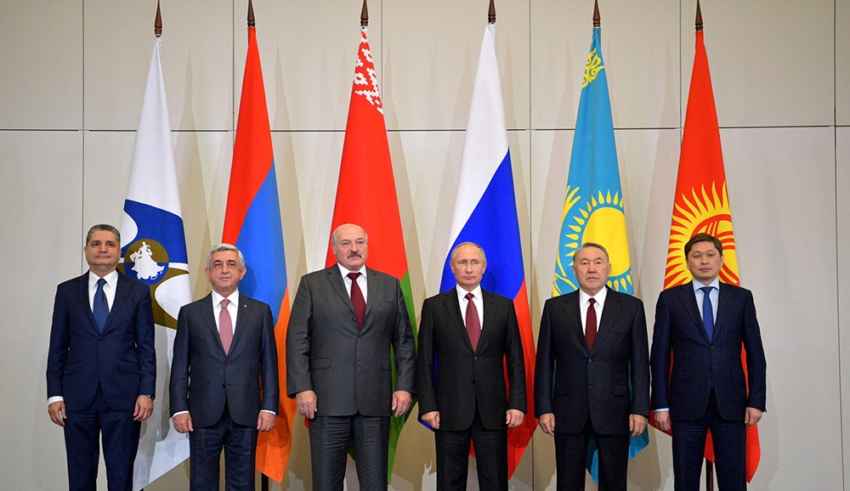
If the Ukrainian and Crimean crises are still a cause for concern in the eyes of the European Union and the United States, it is certain that the challenge launched by Russia to the world in this century is no longer military or ideological, but a global economic challenge. Nobody, a few years ago, believed that the Eurasian economic Union (EAEU) would become a reality and yet, today, it is a dynamic economic reality with which the European Union and its businesses will increasingly have to contend. The legal reference model of the EAEU is the EU itself, with the difference that, while the first organisation is developing beyond all expectations, the second one finds itself in the grip of an identity crisis due to populism, Brexit, lack of political impetus despite its general inadequacy to respond to new global crises.
The emergence of “Putinism” as a political ideology seems to have been instrumental in this process. Since his rise to the presidency at the end of the 1990s, Russian President Vladimir Putin has been implementing a strategy characterized by the strengthening of Russia’s Eurasian identity and superpower[1]. At the beginning of Vladimir Putin’s first presidential term, which began in the spring of 2000, the Russian government concentrated its major foreign policy efforts on seeking the cooperation of those former Soviet states that more than others were aligned with the political objectives of Moscow. The many agreements reached during the previous decade were renegotiated in an attempt to obtain greater political loyalty in return for maintaining discounts on oil and gas supplies.
Thanks to the increase in the prices of energy resources, the Russia’s revenue also increased considerably, allowing Moscow to improve its economic situation. The increase in Europe’s demand for gas and oil allowed Russia to obtain a leverage on which to assert its interests vis-à-vis its European partners. In a short time the economic interdependence between Russia and the EU grew considerably, makinMoscow the third economic partner of the European Union after the United States and China. Therefore, it is not surprising that Iran has applied to join the EAEU and that Turkey, bored with European rhetoric, has expressed a similar interest.
Russia’s geographical position, together with a significant economic and military capacity that is superior to most of the states around it, allows it to play a fundamental geopolitical role in a wide variety of regions stretching from Eastern Europe to the Middle East and the Arctic. Greater integration with the European Union would remain vital for the new Eurasian Economic Union as the EU is the main trading partner of both Russia and Kazakhstan. Some of the reasons why greater cooperation between these two entities would bring benefits to both appear to be evident: the territorial proximity of the two organisations, energy and technological interdependence and the enormous flow of trade between the two regions.
The fundamental moment that would have given rise to the formation of the Eurasian Economic Union was, in the eyes of Moscow, Ukraine’s entry into the common integration project. However, the pressure exerted on Ukraine for its entry into the EAEU occurred at the same time as the European Union’s proposals regarding the activation of the Eastern Partnership project for Kiev. Despite the fact that in the context of the Ukrainian crisis, the Eurasian Economic Union developed characteristics that can be traced back to an anti-Western ideology, it was in fact conceived with completely different premises. Although the starting condition had always been linked to Russia’s control over its neighbours, the organization’s objective was linked to Russia’s desire not to be marginalized on the international scene as a result of European integration processes and the constant growth of China.
The US last April imposed a wide range of economic measures against Russia to punish it for its interference in the 2020 US election between Biden and Trump and for its aggressive policy towards Ukraine. In an increasingly globalised economy such measures may be misplaced and there are many doubts about whether the European Union would support such sanctions given its increasing dependence on Russian gas. This is a considerable advantage for Russia, which could consequently be used to bring considerable economic and political growth benefits to the EAEU, which has all the potential to become a strategic geopolitical player on the international arena.
[1] Sergi B. S. (2018), “Putin’s and Russian-led Eurasian Economic Union: A hybrid half-economics and half-political Janus Bifrons”, Journal of Eurasian Studies, 9(1), pp.52-60.
By The European Institute for International Law and International Relations.















